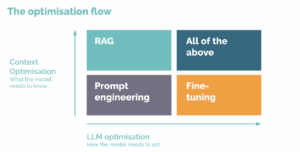
WordPress is the platform of choice for 34% of all websites. Which means there’s a good chance your website is using WordPress, or perhaps you’re thinking about using it for your next website.
WordPress comes a treasure trove of plugins to help with all manner of things - including SEO. In fact, there’s an absolute ton of plugins to go through, with 49 pages of plugins mentioning the term ‘SEO’ alone in the WordPress plugins library. With that in mind, it’s important to make sure you choose the best plugins for your needs.
As you’re reading this blog, you’re probably asking ‘Which plugins will help my website’s SEO the most?’. With that in mind, I’ve provided a small selection of SEO plugins I’ve personally used, and find to be very helpful when optimising a website. This is by no means an exhaustive list, and it’s important to have a solution that works for you and your website’s needs. That may be a combination of these plugins, or something completely different.
1. Yoast
Yoast calls itself the #1 WordPress SEO plugin, and with over 5 million active installations, it’s easy to understand why. That number of installations is for good reason, as the free version of Yoast SEO offers an excellent range of tools to help you with your website optimisation.
Yoast has a range of features, including SEO analysis of individual pages, with functionality to set the meta title and meta description. It also allows you to analyse other important SEO factors, such as internal links, content length and keyword mentions within the body of the page.
Yoast also allows for the format of default page titles and meta descriptions for page types on the website to be set. This is particularly useful on larger websites, where editing every single page title and meta description would be a highly time-consuming task. The same functionality also allows selected page types to be excluded from search results, by allowing for pages to be quickly set as noindex, preventing them from being found in search results.
This WordPress SEO plugin also allows for Facebook open graph meta data and Twitter card meta data to be added to and edited within the Yoast section of posts and pages. Additionally, the plugin can also be used to create and maintain an XML sitemap, making this task simpler and quicker.
Yoast SEO also has a premium version, which gives additional functionality at a cost. This includes internal linking suggestions and a redirect manager that automatically redirects pages when URLs are changed.
I recommend the free version of Yoast SEO, as it provides an excellent set of tools that are simple to use, and assist with a range of basic SEO tasks, such as setting the meta information for pages, creating a sitemap and ensure low-value page types are set to noindex.
2. Google Tag Manager For WordPress
The Google Tag Manager For WordPress (GTM4WP) plugin allows you to easily install Google Tag Manager onto a website, but also provides a lot of additional Tag Manager functionality without the need to engage a developer for anything more than getting the plugin installed.
This can be particularly useful for implementing advanced ecommerce, as this plugin handles the input of information into the data layer - something that would otherwise require development time, as setting up events to pass the ecommerce information into the data layer can be time consuming to implement and test. By using GTM4WP, you can potentially save a lot of time - though you will have to work with the ecommerce information provided by the plugin.
I would recommend this plugin if you need a simpler way to install Google Tag Manager. It is particularly valuable for ecommerce websites, as it provides a simpler way to get advanced ecommerce enabled and working.
3. SEO Optimised Images
The SEO Optimised Images plugin allows you to dynamically insert image ALT and title tags, based on a pattern. This is very useful when you have a large number of images in the database that need to have ALT tags and title tags added.
ALT tags are important - they assist users who are using screen readers, and also provide search engines with context on what the image represents. Without ALT tags, the images have no context, and provide little value to search engines.
4. Redirection
The Redirection plugin allows for 301 redirects to be easily added to a website. Redirects can help you to ensure link equity isn’t lost on pages that have been removed, and also assist users by ensuring they are redirected from 404ing pages to live ones.
Having this plugin is exceedingly useful, particularly if you’re making use of time-limited campaigns that will be removed after they are completed, or if you are restructuring the URLs on your website.
There are a number of other plugins that can also indirectly assist the performance of your site in search, particularly those that optimise the load speed of your WordPress website, either by improving site speed overall, or by reducing the filesize of elements on the site, such as images. Site speed is an important ranking factor, as Google favours sites that load quickly, particularly on mobile devices.
As a final note, always remember to discuss installing any plugin with your developer first, and test it on your development website to ensure it plays nicely with your website. The last thing you want is a new plugin causing costly issues - you want these plugins to save you time and money by making your SEO easier!






